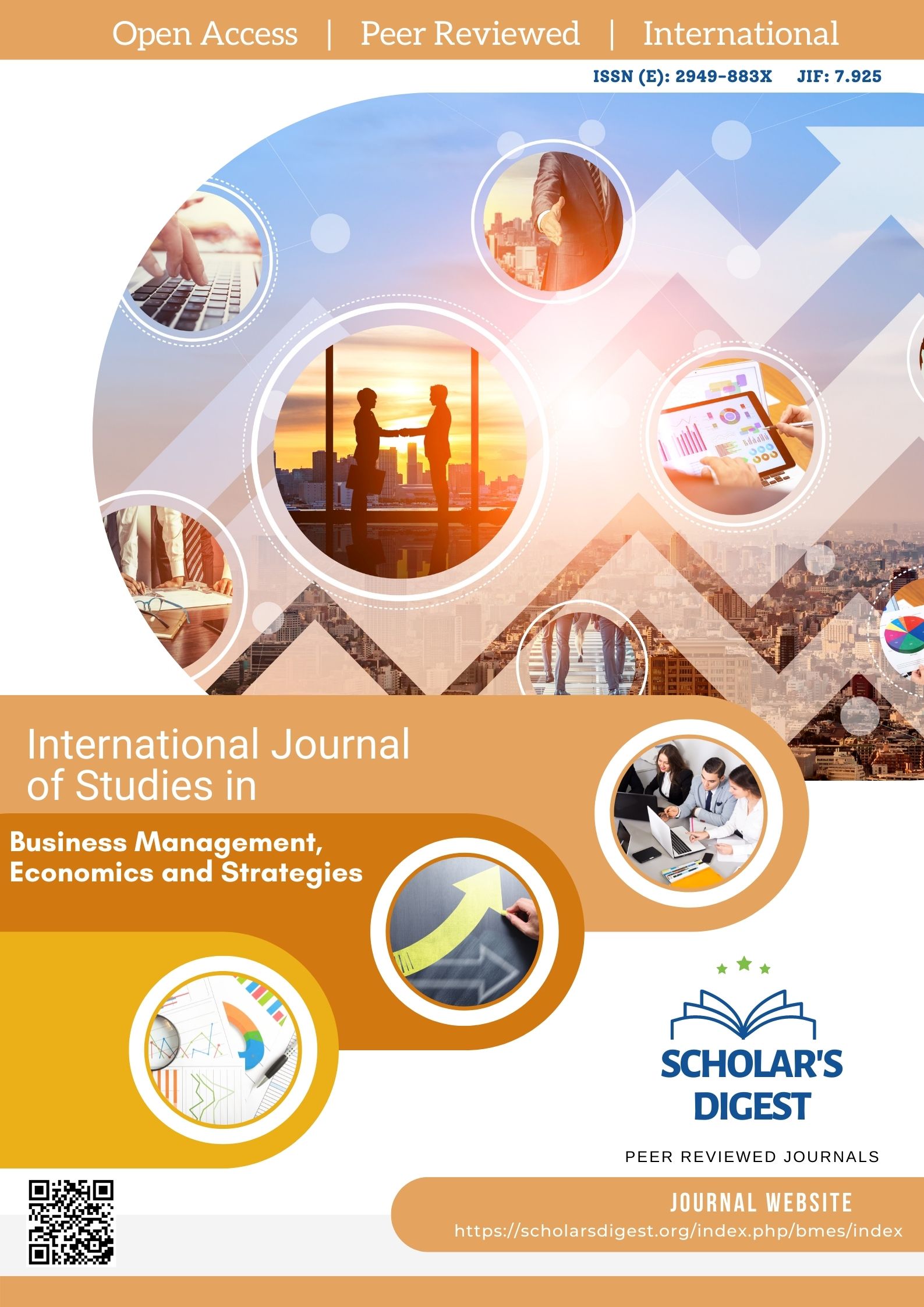FIRM CHARACTERISTICS, ACCOUNTING AND MARKET PERFORMANCE OF MANUFACTURING FIRMS IN NIGERIA
Keywords:
Leverage, Liquidity, Earnings Management Tobin Q, Returns on Asset, Returns on Equity.Abstract
The aim of the study was to determine the effect of firm characteristics on accounting and market performance of manufacturing firms in Nigeria based on data collected for the period 2013-2022 from the Nigeria Stock exchange. The sample size using census sampling method was 22 firms which represent 33% of manufacturing firms on Nigeria Stock Exchange during the period of study. We focused on food and beverages, pharmaceuticals and cement subsector of the Nigeria stock exchange which accounts for 40% of the trade volume. The specific firm characteristics under study were leverage, liquidity, asset tangibility, discretional accruals as independent variables and performance measures; return on asset, returns on equity and Tobin Q were used as dependent variables in the study. The effect of inflation as a macroeconomic factor on performance was also considered. Ex-post facto and census sampling method was used in the study. We established the relationship between variables using multiple regression and Hausman test was used in selection of model. Various diagnostic tests were conducted on data set. Granger causality test was carried out to determine the effect of reverse causality. Findings indicate discretional accruals significantly impact Returns on Asset while leverage, asset tangibility and liquidity have weak relationships with Returns on Asset. Leverage, asset tangibility and discretional accruals significantly impact Returns on equity while liquidity has weak relationships with Returns on Equity. We also conclude, liquidity and earnings management proxied by discretional accruals significantly impact the market as indicated by Tobin Q while leverage, asset tangibility have weak relationships with Tobin Q. We conclude that various factors affect firms’ performance differently. We also conclude that earnings management significantly impact firms’ performance because of its significant relationship to both accounting and market performance indices. Inflation has a negative significant relationship with Tobin Q indicating an increase in inflation reduces market performance of firms. Inflation also insignificantly relate with returns on assets and returns on equity. Thus, inflation have more impact on market returns and valuation of the firm and weak influence on accounting performance of assets and equity. Leverage and asset tangibility have significant relationship with returns on equity and weak relationship with ROA and Tobin Q. Theoretically, the implication of our findings is that the positive significant relationship of leverage with Returns on equity implies that leverage affects performance thus negating the Modigliani and Miller (1958) proposition that capital structure does not affect profitability and firm value. However, Managers should be cautious when using debt in capital structure as it can result in risk of bankruptcy. The positive significant relationship of earnings management to TOBIN Q shows that Managers can use falsified earnings to impact market value thus aligning with the signaling theory.
Downloads
Published
Issue
Section
License

This work is licensed under a Creative Commons Attribution-NonCommercial 4.0 International License.









